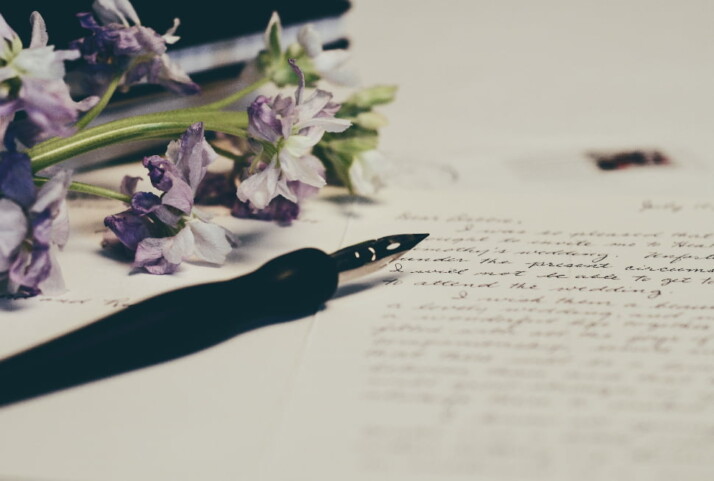Poetry is an art form. And like all other art forms, such as painting, sculpture, or music, poetry makes use of elaborate tools, techniques, and practices. It can talk about a range of topics in the most interesting and beautiful way with the help of words, rhyme, or repetition. And what better way to describe this fascinating piece of art than using creative adjectives to describe poetry?
We’ve listed several words that can help give justice to your poem description. These can really come in handy when you’re writing a poetry review for a writing assignment.

What are Adjectives?
First things first, let’s try to define what adjectives are. This will help you better understand how you can use them in your sentences.
Adjectives are basically words that are used to describe nouns. It can give vivid details of an object’s unique characteristics, such as its size, color, texture, and so on.
To give better emphasis on quality, you can use intensifiers with your adjectives, such as “very” and “extremely.” Or better yet, you can also choose to use strong descriptors to omit the need for intensifiers. These words add more vivid details in a single word.
For example, instead of saying that something is “very tall,” you can say that it is “towering” or “sky-high.”
Creative Adjectives to Describe Poetry
Adjectives Related to Writing Style
- Articulate: Expresses thoughts, arguments, and ideas clearly in a poem that is easy to understand
- Chatty: Chatty writing styles are friendly and informal
- Circuitous: Taking a long time to explain what you mean when you talk or write
- Conversational: An informal approach to writing, it’s written as if it’s like a private conversation
- Crisp: Clear and compelling speech or writing
- Discursive: Includes information that may not be relevant to the main subject
- Eloquent: Using clear and compelling language to express what you mean
- Emphatic: Making your meaning very clear, as you have powerful feelings about the topic
- Epigrammatic: Expressing something in a short, clever, or humorous way
- Euphemistic: euphemistic expressions are used for talking about unpleasant or embarrassing subjects without mentioning the things themselves
- Flowery: Flowery language or writing is composed of deep and complicated words that can make it more appealing
- Grandiloquent: Written in highly formal language to impress people. But it often sounds silly to try too hard.
- Incoherent: Unable to express yourself clearly
- Journalistic: Written in a similar style to journalism
- Lyrical: Text that incorporates the qualities of music
- Ornate: Use of unusual words and complex sentences
- Pithy: A short and effective statement or piece of writing
- Rhetorical: A style of speaking or writing that is effective or intended to influence others
- Shakespearean: Uses the same style that Shakespeare uses in his writing
- Vague: A piece of writing that does not clearly or entirely explain something
- Verbose: Uses more words than necessary, which can make the piece tedious and lengthy
Adjectives for Tone of Writing
- Absurd: writing that is absurd; ridiculous; stupid; implausible; foolish
- Aggressive: a hostile tone that usually conveys anger
- Apathetic: a lack of empathy and interest
- Benevolent: seeks to do good rather than harm
- Celebratory: a tone that is full of joy
- Compassionate: a kind and understanding tone
- Cynical: a mood of distrust, pessimism, and negativity
- Depressing: a sad tone or mood
- Facetious: a tone that is silly and lighthearted
- Gentle: typically a soft tone that uses a gentle way of talking
- Humorous: often amusing and that uses irony, sarcasm, or dry wit
- Inspirational: a tone that usually harnesses positivity
- Incredulous: a tone that is filled with disbelief or astonishment
- Judgmental: serious, stern, often critical tone.
- Mourning: a somber and grieving tone
- Nostalgic: evokes feelings of nostalgia or longing
- Outraged: angry and often shows hostility.
- Persuasive: uses logic, reason, and facts to persuade
- Pragmatic: realistic and practical, typically used to address current problems
- Satirical: often poking fun at people and writing in a sharp manner
- Sentimental: a gentle, caring, or sentimental tone that can have over-the-top emotions
- Vindictive: a spiteful tone
Conclusion
Poetry is an art form that fuels inspiration and imagination. And you can describe it mainly through its tone and writing style. With the proper adjectives to describe poetry, you’ll be able to capture the message and mood of the poem fully.
Explore All Add Strong Adjectives Articles
Comprehensive Adjective List to Describe a Day
“How was your day?” you’ve probably been asked this question dozens of times. And it can be hard to find…
The Best Adjectives to Describe a Hardworking Person
Indeed, there are words that people use to cheer someone up. If you are trying to boost the confidence of…
The Best Descriptive Words for Emotions
Do you want to describe you what you feel through the exact words? Are you eager to let other people…
An Lesson Guide About Descriptive and Limiting Adjectives
Whenever you write an article or essay, adjectives will never disappear from your text. You will always use descriptive and…
Colorful Adjective Examples Worth Considering
The English dictionary is one of the most reliable writing guides, consisting of various words used to describe the shade…
Learn the Best Adjectives to Describe Things
Are you thinking of the best words to use when trying to distinguish the characteristics of one noun from another?…
